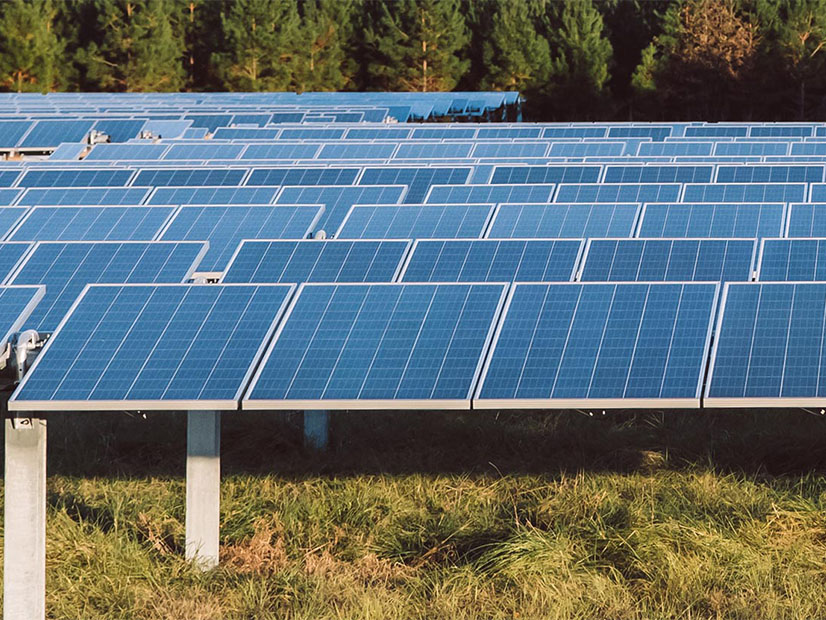ISO-NE’s Order 2023 compliance filing received mixed comments from a range of clean energy stakeholders last week, drawing support from several large trade associations along with protests from multiple companies.
Order 2023 is intended to reduce wait times and costs associated with interconnection by mandating that transmission providers implement first-ready, first-served cluster study processes with defined timelines. (See FERC Updates Interconnection Queue Process with Order 2023.)
ISO-NE filed its compliance proposal for Order 2023 and Order 2023-A on May 14 with the unanimous support of NEPOOL (ER24-2007, ER24-2009). (See NEPOOL Participants Committee Briefs: May 3, 2024 and NEPOOL PC Backs ISO-NE Tariff Revisions for Order 2023 Compliance.)
In comments supporting ISO-NE’s filing, Advanced Energy United, American Clean Power Association, Natural Resources Defense Council and Solar Energy Industries Association jointly praised the RTO’s adoption of several stakeholder amendments to its proposal.
“Throughout this process and right up to the final vote, there was extremely robust stakeholder engagement in the compliance proceeding,” the groups wrote. “Ultimately, from more than two dozen stakeholder amendments, ISO-NE adopted four priority stakeholder proposals identified by parties representing interconnection customers in part or in full in some form.
“While future reforms beyond Order No. 2023 will be needed to ensure a fully functional and efficient interconnection process in New England, ISO-NE’s Order No. 2023 reforms will mark an important first step in improving existing processes,” the groups added.
ISO-NE has committed to continuing work to improve interconnection, writing in its filing that it “will continue its engagement with stakeholders both to ensure successful implementation at the outset and to assess potential improvements going forward.”
The clean energy groups expressed interest in additional efforts to further reduce the overall cluster study timeline, provide more information and process transparency to interconnection customers and add flexibility to alter projects during the interconnection process to limit costs.
RENEW Northeast also supported the filing, specifically applauding ISO-NE’s proposal for studying storage resources.
Order 2023 directs RTOs to let storage developers dictate the system load at which they would charge, while requiring control technologies to prevent charging beyond this load. ISO-NE has proposed a variation in which it would study storage resources at “peak shoulder load” and rely on security-constrained economic dispatch to prevent storage “from being dispatched at load levels higher than the peak shoulder load under which the facility was studied.”
RENEW Northeast wrote that the approach “will afford energy storage the flexibility to optimize its operations according to real-time grid reliability conditions rather than under limits established during the interconnection study process that will likely become less relevant over time as the grid topography changes.”
Calls for Shorter Study Timelines, Expanded Use of Surety Bonds
New Leaf Energy also applauded the proposed storage methodology, along with ISO-NE’s proposal to continue work on late-stage interconnection studies that are projected to be complete by the end of August.
The company echoed the need for additional work to improve interconnection in the region, writing that “the success of the new interconnection process relies, in part, on the timely evaluation of how the new process is working and continuous improvement thereof.”
It recommended that ISO-NE establish an interconnection working group as a formalized setting to continue working on interconnection improvements.
Meanwhile, BlueWave called on FERC to require ISO-NE to follow the original timelines proposed in the order and increase the flexibility for interconnection customers to make changes to their request amid the interconnection process.
While Order 2023 puts a 150-day deadline on each cluster study and an additional 150-day deadline on cluster restudies, ISO-NE has proposed a 270-day deadline for cluster studies and a 90-day deadline for restudies.
“Protracted study timelines are one of the reasons for increased project costs and failures,” BlueWave wrote. “Short study timelines would also result in less queue backlog, fewer restudies and fewer requests for modifications.”
Longroad Energy argued that ISO-NE should expand the eligibility of surety bonds to meet the financial requirements within the interconnection process. ISO-NE has proposed to accept surety bonds only for commercial readiness deposit beginning in 2025.
“Surety bonds are generally easier and less expensive to procure than other accepted forms of financial security,” the renewable developer wrote, adding that CAISO “already accepts surety bonds for generator interconnection customers.”
Glenvale Solar took issue with ISO-NE’s proposed variation regarding study deposits and application fees, writing that the RTO’s proposal of uniform study deposits and application fees is “unduly burdensome and discriminatory to developers of smaller resources.”
The company called on FERC to require the RTO to follow the tiered approach outlined in Order 2023.




